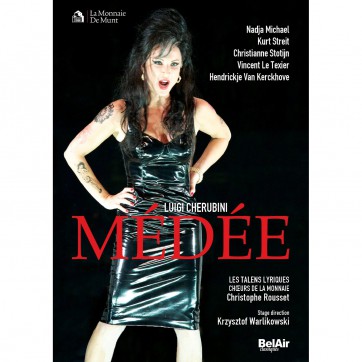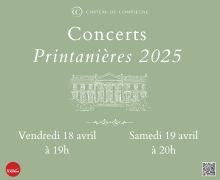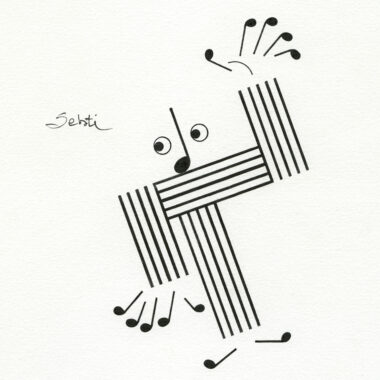Plus de détails
Luigi Cherubini (1760-1842) : Médée, opéra-comique en trois actes. Livret de François-Benoît Hoff-man. Adaptation de Krzysztof Warlikowski et Christian Longchamp. Mise en scène : Krzysztof Warli-kowski. Costumes : Malgorzata Szczesniak. Lumières : Felice Ross. Dramaturgie : Christian Longchamp et Miron Hakenbeck. Conception vidéo : Denis Guéguin. Chorégraphie : Saar Magal. Avec : Nadja Michael, Médée ; Kurt Streit, Jason ; Christianne Stotijn, Néris ; Vincent Le Texier, Créon ; Hendrickje Van Kerckhove, Dircé ; Gaëlle Arquez, Première Servante ; Anne-Fleur Inizan, Deuxième Servante. Chœur de la Monnaie (chef de chœur : Stephen Betteridge). Les Talens Lyriques, direction : Christophe Rousset. Réalisation : Stéphane Metge. Enregistré en septembre 2011 à La Monnaie de Bruxelles. Sous-titrage en anglais, français, néerlandais, allemand. 2 DVD. Bel Air BAC076. Code-barre : 37600115 300767. Format image : 2 DVD9 NTSC, colour, 16.9. Format son : PCM stereo, 5.1 Dolby Digital. Zone 0. Durée totale : 138’
Bel Air Classiques This DVD featuring Médée provides the music lover with the opportunity to watch Christophe Rousset and director Krzysztof Warlikowski's memorable production of Cherubini's masterpiece. First given at La Monnaie in Brussels in 2008, this opera returned in September 2011 before being presented in Paris at the Théâtre des Champs-Elysées in December 2012. First, we must applaud the appropriate choice of using the French version of the opera, including the spoken dialogue, which sounds much more genuine that the Italian recitativo that had been traditional since Maria Callas's performances in the work. The dialogue in its rewritten version includes colloquial language – Jason tells Médée, who “wanted all this crap”, to “get the hell out of here”; an overwrought Dircé threatens to “do something stupid”; Médée's children cover the walls with obscene graffiti directed at their step-mother-to-be, and so on – crude words that, far from shocking, effectively carry Euripid's drama into today's world and show its intrinsic modernity. The induced contrasts with the work's classicism, its use of alexandrines and above all that is, terrifyingly, left unsaid in the sung lyrics are all the more striking.
This DVD featuring Médée provides the music lover with the opportunity to watch Christophe Rousset and director Krzysztof Warlikowski's memorable production of Cherubini's masterpiece. First given at La Monnaie in Brussels in 2008, this opera returned in September 2011 before being presented in Paris at the Théâtre des Champs-Elysées in December 2012. First, we must applaud the appropriate choice of using the French version of the opera, including the spoken dialogue, which sounds much more genuine that the Italian recitativo that had been traditional since Maria Callas's performances in the work. The dialogue in its rewritten version includes colloquial language – Jason tells Médée, who “wanted all this crap”, to “get the hell out of here”; an overwrought Dircé threatens to “do something stupid”; Médée's children cover the walls with obscene graffiti directed at their step-mother-to-be, and so on – crude words that, far from shocking, effectively carry Euripid's drama into today's world and show its intrinsic modernity. The induced contrasts with the work's classicism, its use of alexandrines and above all that is, terrifyingly, left unsaid in the sung lyrics are all the more striking.
The staging by Krzysztof Warlikowski is mind-blowing. Not especially, in truth, on account of the director's choosing to transpose the historical period of the work, whose theme is timeless anyway. Even before the overture, and apparently during intermission too, videoclips filmed in Super 8 turn the front curtain into a screen showing different scenes starring a preppy family, under the somewhat gaping gaze of Médée's children. The look is the 1950s or '60s, and Jason looks like a businessman who, after having succeeded in life thanks to the complicity of Médée (his first wife), would now like to settle down and marry a young girl from a good family who would assure him social respectability. Créon, pleased to find such an appealing match for his dear Dircé, visibly comes from the ranks of these same “conquerors” without scruples. This corrupted world does all it can to appear polished, hushed, and glazed, but in the end is merely impersonal. It is in this world that Médée, a stranger – an Arab in this case – shows up. She has tattoos and wears wigs and sexy, provokative outfits, but she is above all on an implacable search for truth and justice: it is not Jason's “dough” she longs for.
Indeed, more than the transposition of the time period and setting, it is how the actors are directed that remains fascinating from start to finish. Each gesture rings resoundingly true, whether simple or excessive. The audience, aghast, follows Médée and Jason in this claustrophobic drama, and witnesses how love, passion and possessiveness can lead to a downward spiral. Caught in an infernal chain of events, both characters fall apart and tear each other apart up until the final descent into hell. Each movement turns out to be extraordinarily significant, with astonishing strength and violence, even throughout the breaks in the action—but the direction seems to load those breaks with emotional burdens too, starting with Néris's lullaby. After the last orchestral surge, this frightening battle ends with a silent scene during which Médée, after having meticulously folded and put away her sons's pajamas, stained by their own blood, lights up a cigarette and walks offstage while the door of an iron curtain bangs in the silence. Chilling—and mind-blowing too. The video recording is always admirable.
The musical performance is also up to scratch. The performances by Vincent Le Texier and Henridkje Van Kerckhove, conventional as they should be as Créon and Dircé, seem almost unimportant, which is not surprising given the context. Both performers nonetheless share the virtue of singing in an elegant and undefiled French, which was not the case of Christianne Stotijn, who as Néris leaves us unmoved—a shame, in one of the best roles of the score. Kurt Streit swaggers around, amazingly spot on as a manly, but hurt and outraged, predator, and is valiant in singing Jason's part, whose range derives from the French-type countertenor (haute-contre) register. He gives a remarkable performance, both vocally and physically. As Médée, Nadja Michael couldn't appear more realistic, and it is hard to imagine who else among actresses, even those from the theater, would be able to compete with such a rich and intense performance. As a result, we can almost forgive the harshness of her voice, which in such a context is transformed into an obvious advantage. The instrument itself is intrinsically ordinary, and there is almost no sustained line in her phrasing, but the voice is accurate, strong, strinking, and she knows perfectly well how to use all the dramatic effects of the score.
Christophe Rousset is the dream man for what can only be called a resurrection. Since he has already tried his hand at the nineteenth-century repertoire – in particular in three albums with Véronique Gens – his desire to explore this repertoire, which lies in-between the Baroque, classicism and Romanticism, is well-known. Here, he unleashes the musicians, who throw themselves furiously at this extremely violent score, but who know how to preserve its few gentle and relaxed parts.
Hand it until the end, and this show will not leave you unmoved.
Plus de détails
Luigi Cherubini (1760-1842) : Médée, opéra-comique en trois actes. Livret de François-Benoît Hoff-man. Adaptation de Krzysztof Warlikowski et Christian Longchamp. Mise en scène : Krzysztof Warli-kowski. Costumes : Malgorzata Szczesniak. Lumières : Felice Ross. Dramaturgie : Christian Longchamp et Miron Hakenbeck. Conception vidéo : Denis Guéguin. Chorégraphie : Saar Magal. Avec : Nadja Michael, Médée ; Kurt Streit, Jason ; Christianne Stotijn, Néris ; Vincent Le Texier, Créon ; Hendrickje Van Kerckhove, Dircé ; Gaëlle Arquez, Première Servante ; Anne-Fleur Inizan, Deuxième Servante. Chœur de la Monnaie (chef de chœur : Stephen Betteridge). Les Talens Lyriques, direction : Christophe Rousset. Réalisation : Stéphane Metge. Enregistré en septembre 2011 à La Monnaie de Bruxelles. Sous-titrage en anglais, français, néerlandais, allemand. 2 DVD. Bel Air BAC076. Code-barre : 37600115 300767. Format image : 2 DVD9 NTSC, colour, 16.9. Format son : PCM stereo, 5.1 Dolby Digital. Zone 0. Durée totale : 138’
Bel Air Classiques







